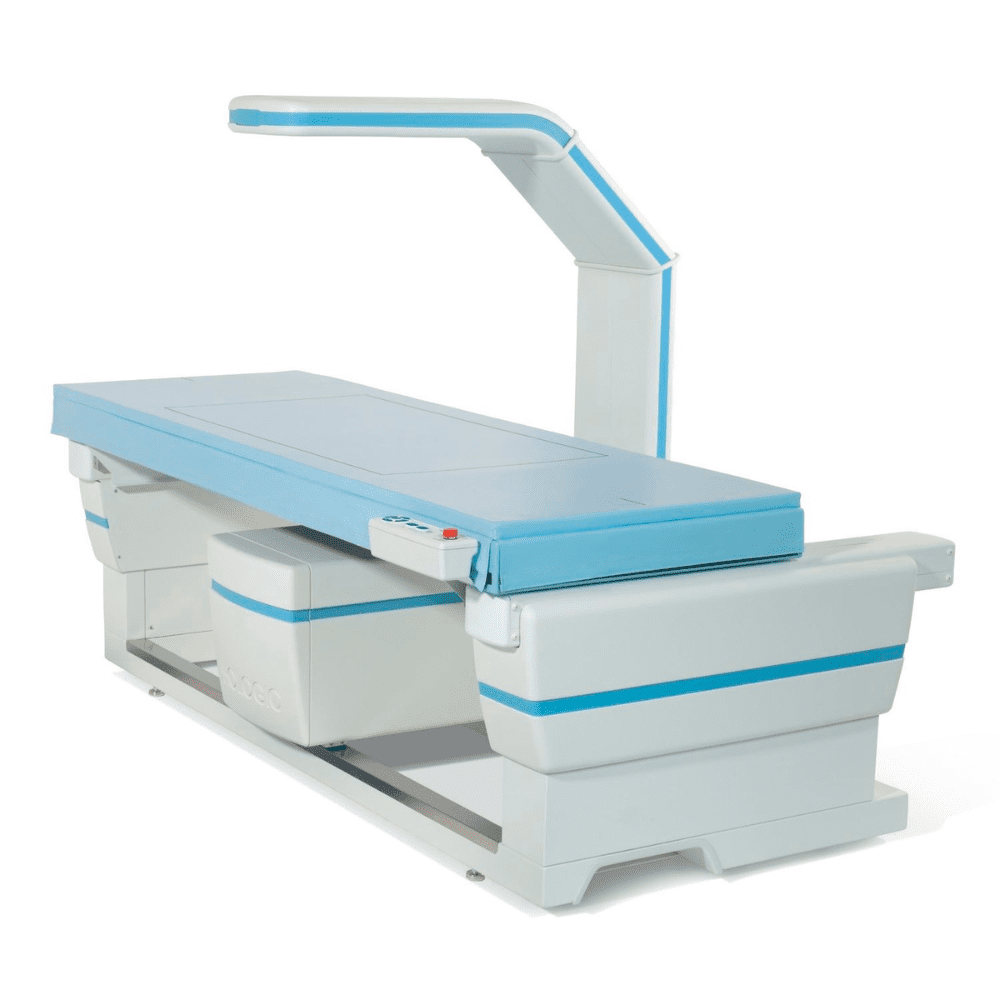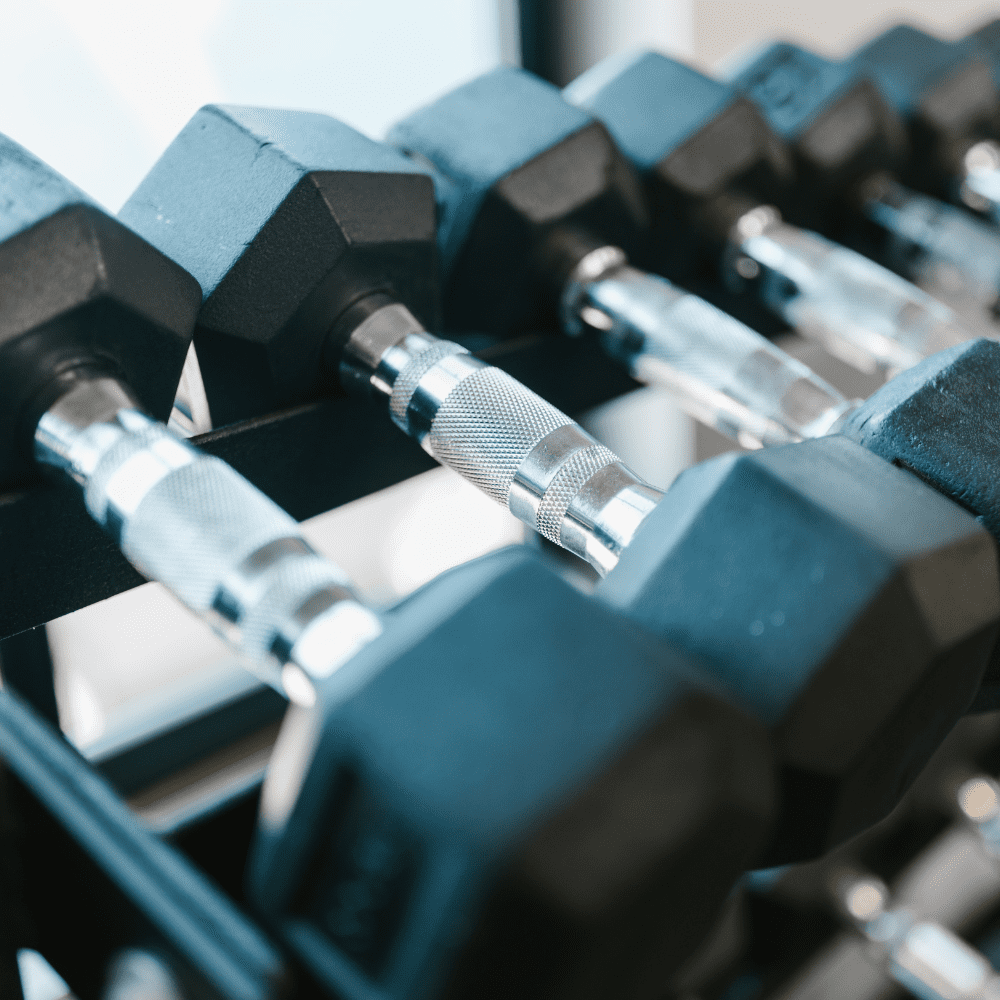
Accuracy: With only a 1-2% error rate, a whole body comp DEXA Scan is the most precise and reliable way to measure body composition, including visceral fat.
Comprehensive: This scan is the only method available that distinguishes between body fat mass, lean muscle mass, and bone mineral content so you have the most comprehensive view of your body composition.
Disease Prevention: Increased visceral fat is associated with higher rates of heart disease, diabetes, and stroke. A whole body composition DEXA scan accurately measures hidden visceral fat, enabling early detection, targeted lifestyle changes, and better long-term health management.

A DEXA Scan (Dual-Energy X-ray Absorptiometry) is a highly accurate, non-invasive tool for analyzing body composition and estimating bone density.
In just 6 minutes, you’ll gain detailed insights into your overall health—including metrics like visceral fat, a key indicator of metabolic risk. These results empower you to make informed choices about your diet, exercise, and lifestyle, helping you optimize your body composition and support long-term wellness.
DEXA scanning is considered safe for most people, as it uses very low doses of ionizing radiation—comparable to a few hours of natural background exposure, like working in your garden.

Wear relaxed clothing free of metal from zippers, buttons, bra hooks/underwires
Remove all jewelry and piercings
Avoid a heavy meal before the scan
Avoid taking a calcium supplement morning of the scan

Includes complete scan, printed report, and review of results
1 Complete Scan $125
3-Pack Complete Scan *$325
*Recommended to track progress
Current patients at The Prevention Center will receive reduced pricing on Body Composition Scans. Use the scheduling link on this page to access the patient pricing and make your appointment.

Take charge of your health today by easily scheduling your scan at a time that works best for you! USE THE SELF-SCHEDULING LINK BELOW. Payment is required at time of scheduling.
Cancellation Policy
We require at least 24 hours’ notice to cancel or reschedule a scan appointment. This allows us the opportunity to offer your time slot to another client. Please review the cancellation policy when scheduling your scan appointment.
1. What is a whole body composition scan?
A whole body composition scan is a non-invasive test using DEXA (Dual-Energy X-ray Absorptiometry) technology to measure fat mass, muscle mass, and estimated bone density across the entire body. It is considered the gold standard for measuring body composition.
2. What does the scan measure?
It provides detailed data on:
Total body fat percentage
Regional fat distribution (e.g., android (central) vs. gynoid (lower body))
Lean muscle mass
Bone mineral content, an estimated T score (not meant to replace a full, formal DEXA scan to assess and diagnose bone loss)
Visceral adipose tissue (VAT)
3. How is this different from a regular DEXA bone density scan?
A standard DEXA scan typically focuses on bone density in specific areas like the spine and hip. A whole body composition scan provides a full-body map of fat, muscle, and bone.
4. Is the scan safe?
Yes. The scan uses very low levels of X-rays—much lower than a chest X-ray—making it safe for routine use in most individuals, though not recommended during pregnancy.
5. Who can benefit from a body composition scan?
Individuals on weight loss programs and/or taking a GLP-1 antagonist medication
People working on preventing or managing cardiometabolic diseases by measuring visceral adipose tissue (VAT)
Patients seeking to prevent bone loss and muscle loss (sarcopenia), which increases risk of falls and frailty
Individuals tracking muscle gains or fat loss to optimize their overall body composition
6. How long does the scan take?
The scan takes about 6 minutes, while lying still on the scanning table. Please allow 30 minutes for the scan and discussion of results.
7. Do I need to prepare for the scan?
Generally, no special preparation is needed. However, you should:
Wear comfortable clothing without metal (zippers, buttons, bra hooks/underwires)
Remove all jewelry and piercings
Avoid eating a heavy meal before the scan
Avoid taking a calcium supplement the morning of the scan
8. How accurate are the results?
DEXA scanners are considered highly accurate and precise, with standardized calibration and algorithms to ensure reliable tracking over time. Metal in the body—such as plates, joint replacements, or other implants—can sometimes be misread by the DEXA scanner as lean tissue, which may slightly skew the accuracy of the results. However, when using the same machine for follow-up scans, you can still reliably track changes in body composition over time, as any measurement inconsistencies will remain consistent across scans.
9. What is the difference between bioimpedance (like the stand-on scale at The Prevention Center) and Whole Body Composition Scanning using DEXA?
DEXA is considered the most accurate and detailed option, especially valuable when you need precise, repeatable data. The results are less impacted by other biological changes such as hydration and food intake.
Bioimpedance is very accessible, but the results can fluctuate based on hydration, food intake, skin temperature, and other variables.
10. Will my insurance cover it? Can I use my FSA/HSA?
Whole body composition scans are often considered elective or wellness services and may not be covered unless medically justified. We do not bill insurance and expect cash payment at the time of scheduling. It's likely a whole body composition scan would be covered by FSA/HSA funds. However, this is not guaranteed, and payment must be collected at the time of scheduling a scan, regardless of reimbursement by FSA/HSA.
11. How often should I get scanned?
For tracking visceral adipose tissue, increasing muscle mass or fat loss, every 3–6 months is recommended.